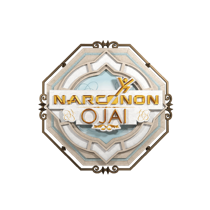What Is Enabling and How Does it Hurt Your Loved One?

The natural instinct of any caring mother or father is to help an ailing loved one. With the majority of people being under the impression that addiction is a disease, continuing to aid an addicted loved one might make sense and seem to be the right thing to do. Regrettably, this is not the case. Enabling an addicted loved one is not helpful and addiction is not an incurable disease.
The solution to addiction comes from within. Most addicts are so far down, that this is not a reality for them. That’s where family and friends come in. There is a difference between helping an addict overcome their addiction and enabling. Often people get this confused.
Enabling someone allows them to continue their self-destructive behavior. Helping someone overcome addiction often involves intervening on the self-destructive behavior with the aim of getting the person treatment.
The family dynamic is designed to support one another, which is why an addiction intervention is done—to support the addict with getting treatment. When someone is enabling a person addicted to drugs or alcohol they are making it easier for them to continue to abuse drugs or alcohol.
“Like every fire needs oxygen, every addict needs an enabler”
This is a philosophy that those of us in the treatment industry adhere to and one that I apply with every family.
Enabling is the opposite of helping. Let’s say you have a 5-year-old that cannot tie his shoes, so you keep tying his shoes for him. Now he is seven and still cannot do so. Are you helping him or hurting him? Our job as parents is to ensure our children are capable adults and can fend for themselves. Making things easy for them by solving their problems is not going to make them stronger and more capable.
Tying one’s own shoes is one of the first major obstacles many of us face in life. I remember that knowing how to tie my shoes was a requirement for me to be able to enter kindergarten. Oh, how proud we were when we finally did it! I know I was! Just imagine what kind of self-esteem I would have, or would not have, if I had not been given the opportunity to overcome that very challenging feat!
When someone becomes addicted to drugs they are trying to solve some sort of problem. These problems are emotional or physical issues particular to that individual. Drugs or alcohol are taken to solve these problems. Enabling a person addicted to drugs or alcohol is making it easier for them to continue to abuse drugs or alcohol. Using our analogy above, you can look at this like drugs and alcohol are helping the addict tie their shoes, or so he (or she) thinks. Meanwhile, the actual problem is unresolved and gets worse. Drugs and alcohol are then abused even more and then themselves become the problem.
A drug intervention helps the family regain control of this chaotic and life-ending situation. It helps the family and can save the life of your loved one. It helps the family learn the best way for the addict to “tie their own shoes.” That is the only way this addiction is going to be overcome, regardless of the philosophy you choose to follow. You are never going to solve this problem for your loved one. We have to get them up to the point of seeing that they can do so. With an intervention, you can make this happen.
Guest post by
Bobby Newman, CIP, ICPS, ICDAC
Founder & Interventionist Newman Interventions

